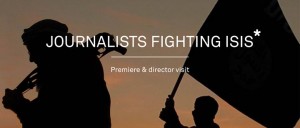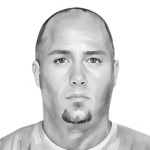 A Look at City of Ghosts and John 10
A Look at City of Ghosts and John 10
On Thursday, in New York City, at the Tribeca Film Festival, I saw a new documentary about Syria, City of Ghosts. It tells the story of citizen journalists of Raqqa, a city taken over by ISIS, where hell has been the order of the day for over a year.
These citizen journalists were college students when Syria dissolved into civil war a decade ago. One of their journalism professors urged them to become citizen reporters, documenting everything they could with their phones, their laptops, and their expert use of social media.
For the past ten years they have been doing just that. At first, they stayed in Raqqa and sent out information. Things got worse, and some were tortured and killed, and then a few of them decamped to Turkey’s Syrian border towns. And finally, when their old professor was killed in Turkey by ISIS members who hunted him down, some moved to Germany, where they could be a bit safer, at least for a while.
And some intrepid reporters have remained in Raqqa, living furtively, trying to remain hidden from ISIS, and recording grainy footage on phones hidden in their collars, their palms, their pockets. They contact their colleagues in Turkey and Germany as they can, and send the footage to them to be distributed.
They cannot be online for long, as ISIS can trace them. And so they change their phone cards often, make contact irregularly and only for a few minutes at a time, and are unable to say much.
In New York, we not only watched the films they send and a film about them, two of these men were present in the multiplex in Chelsea, talking to us and answering our questions as best they could.
And someone asked, “What about religion? How do you deal with ISIS proclaiming that God wants all this violent death?” (City of Ghosts shows a number of beheadings and a number of executions — shootings at point blank range — including the father of one of the journalists, who was executed because of what his son is doing.)
The Syrian journalist replied that they are Muslims, and they do all believe in God. They are convinced that ISIS is twisting their religion and distorting their faith, just as ISIS is starving the people of Raqqa, who are not, as ISIS proclaims in its ads, happily living in a prosperous caliphate, but are desperately trying to survive in the midst of bombs, strafing, murder, torture, and starvation.
The journalists have posted footage of the people of Raqqa, including many children, standing in food lines waiting for handouts of rice and water.
What about religion? I have known many people who have turned away from God in disbelief because of a single death. These citizen journalists have persisted in their faith despite ten years of tragedy and misery.
And they have done so because they have a profound understanding of the Bandit Shepherd.
Every year, a couple of weeks after Easter, Christians hear the passage from John’s gospel in which Jesus calls himself the Good Shepherd and speaks about the bandit shepherd, calling this shepherd a thief.
But it doesn’t mean much to us. In generations past, bandit shepherds were identified as clergy of other faiths, which were to be shunned. The only other faith represented in America in the middle of the 20th c was Judaism, and Jews still endure outbursts of graffiti and public insults. Moslems, whose numbers have increased in the past four decades, are now in the firing line of the culture.
But for nearly a hundred years, if you were Catholic, Protestants were the religious bandits, and if you were Protestants, it was Catholics you were to shun.
Progressives are pretty skeptical about TV preachers, considering them bandits who raked in your money with easy answers to the world’s ancient questions. Yet I’ve known middle aged adults who, when they were teens, did attend a Graham rally and did go forward to be saved, and still remember the moment as a halcyon one.
So I am not sure we have ever faced what Muslims in Syria, Libya, the Sudan, and other countries are facing: a murderous banditry masquerading as their own religion but upending their values and their profound commitment to peace, and executing large numbers of Muslims who do not agree with their views about violence and God’s will.
White America has witnessed this kind of religious banditry in the Ku Klux Klan, which rampaged across the south from the 1930s through the late 1960s, burning crosses, singing Rock of Ages, and hanging scores of young black men.
There isn’t a religion in the world that cannot be twisted to the service of hatred. We’ve seen small hate churches revile gay and lesbian people in public, burn Korans on their church lawns, seek the death penalty for criminals even though they say they believe in Jesus, who was executed as a criminal and forgave other criminals on the cross.
Jesus, in John 10, warns his friends to beware false shepherds. The false shepherd steals everything: the church (or mosque); the community inside and outside the place of worship; and the faith itself.
Here in the US the alt-right has found a new public platform, and the din of conflicting values and attitudes is being waged in the streets and in the pages of the press, both the honest, truthful press (which our president reviles) and the slanted, untruthful press, like Fox News and Breitbart, Laura Ingraham and Rush Limbaugh (which our president watches faithfully and quotes in his tweets).
These public figures are not clergy, but they are shepherds, leading souls to want to be cruel rather than merciful, punishing rather than welcoming, and bigoted rather than open to others, forgoing judgment as Jesus bade us.
The Raqqa journalists, now in their thirties, find hope and courage in their hope of restoring Syria for their children, a resurrection in faith a place where they remember the kind of life Jesus preached – neighbors, happy for each other’s joys and sharing in each other’s sorrows, always in the name of God, whose blessing is Peace to each one.
_______________________________________________________________________________
Image: Poster for City of Ghosts, from Allevents, for the spring film festivals.














